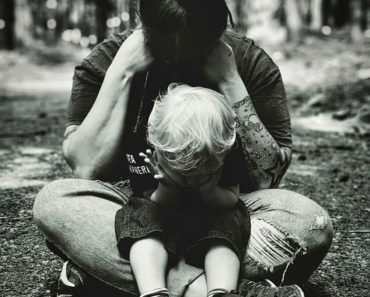Contents
- 1 Understanding and Overcoming the Impact of Husband’s Porn Addiction on Mental Health
- 2 Understanding the Impact of Porn Addiction on Mental Health
- 3 The Emotional Toll of Porn Addiction on Individuals and Relationships
- 4 Developing Healthy Coping Mechanisms for Both Partners
- 5 Rebuilding Trust and Restoring Intimacy
- 5.1 How can I support my husband in overcoming his porn addiction while also taking care of my own mental health?
- 5.2 What are some healthy coping strategies for managing the emotional impact of discovering my husband’s porn addiction?
- 5.3 Are there any specialized therapy or support groups available for partners dealing with their spouse’s porn addiction, and how can I find them?
- 5.4 Related Posts

Navigating the Storm: Addressing Dealing with Husband Porn Addiction
we delve into the sensitive topic of Husband Porn Addiction and explore strategies for spouses navigating through this challenging journey. By unraveling the complexities surrounding this issue, we aim to shed light on the path toward healing and restoration in relationships affected by porn addiction.
Understanding and Overcoming the Impact of Husband’s Porn Addiction on Mental Health
Understanding and overcoming the impact of a husband’s porn addiction on mental health is crucial for individuals dealing with this challenging situation. Porn addiction can have severe consequences on the mental well-being of both the addicted individual and their partner.
Understanding the underlying factors contributing to the addiction is the first step towards addressing it. It is important to recognize that porn addiction is often rooted in deeper emotional issues such as low self-esteem, anxiety, depression, or unresolved trauma. By acknowledging these factors, individuals can begin to unpack the root causes and work towards healing.
Overcoming the impact of porn addiction requires open and honest communication between partners. The non-addicted partner should express their concerns and feelings, establishing boundaries and expectations for recovery. Seeking professional help, such as therapy or support groups, can also provide valuable guidance and resources throughout the process.
Mental health professionals play a crucial role in assisting individuals and couples affected by porn addiction. Therapists can help explore the emotional ramifications of the addiction, offering coping strategies, and facilitating the rebuilding of trust and intimacy within the relationship.
Recovery from porn addiction is a long and challenging journey that requires patience, understanding, and persistence. It is crucial for both individuals involved to prioritize self-care and seek the necessary support systems to address the mental health implications and create a healthier, more fulfilling relationship.
Understanding the Impact of Porn Addiction on Mental Health
we will explore the ways in which husband porn addiction can affect mental health and well-being.
The first subsection could be:
The Emotional Toll of Porn Addiction on Individuals and Relationships
This section will delve into the emotional consequences of porn addiction, both for the person struggling with it and for their partner or spouse.
When discussing the emotional toll of porn addiction, it is important to address the feelings of shame, guilt, and betrayal that individuals may experience. These emotions can have a significant impact on their mental health, leading to increased anxiety, depression, and low self-esteem. For the partner or spouse, discovering a husband’s porn addiction can trigger feelings of inadequacy, insecurity, and betrayal, causing distress and possible relationship breakdown.
Additionally, this section could highlight the importance of seeking professional help, such as therapy or counseling, to address and manage these emotional challenges. Therapy can provide individuals and couples with a safe space to express their feelings, rebuild trust, and develop strategies for healing.
Developing Healthy Coping Mechanisms for Both Partners
This section will focus on establishing healthy coping mechanisms for both individuals impacted by porn addiction.
For the individual struggling with porn addiction, it is crucial to explore healthier alternatives to cope with stress, loneliness, or boredom, which are often triggers for engaging in addictive behaviors. This may involve finding new hobbies, practicing self-care, or seeking support from addiction recovery programs or online communities.
Similarly, the partner or spouse should prioritize self-care and seek support from therapists or support groups who specialize in dealing with the challenges of being in a relationship affected by porn addiction. Developing healthy coping mechanisms may include setting boundaries, practicing open communication, and fostering a supportive network.
Rebuilding Trust and Restoring Intimacy
This section will discuss the process of rebuilding trust and restoring intimacy in a relationship affected by porn addiction.
Rebuilding trust after a husband’s porn addiction requires open and honest communication, empathy, and a commitment to change. Both partners need to acknowledge and address the underlying issues that contributed to the addiction and work together to establish healthy boundaries and expectations.
Restoring intimacy may involve professional therapy, couples counseling, or individual reflection. It is essential for both partners to understand that healing takes time and patience, and it may be necessary to seek professional guidance to navigate this journey effectively.
By highlighting these key aspects of dealing with husband porn addiction within the realm of mental health, readers can gain valuable insights and guidance on how to effectively address the challenges they may be facing.
How can I support my husband in overcoming his porn addiction while also taking care of my own mental health?
Supporting your husband in overcoming his porn addiction while also taking care of your own mental health can be a challenging task, but it is possible.
1. Educate yourself: Take the time to learn about porn addiction and its effects on individuals and relationships. This will help you gain a better understanding of what your husband is going through and how best to support him.
2. Encourage open communication: Create a safe and non-judgmental space for your husband to talk about his addiction. Encourage him to share his feelings, triggers, and challenges he might be facing. Listen without criticism and offer empathy.
3. Seek professional help: Encourage your husband to seek professional help from a therapist or counselor who specializes in addiction treatment. They can provide guidance, tools, and strategies to help your husband overcome his addiction. You may also consider couples therapy to address any underlying relationship issues.
4. Set healthy boundaries: Establish clear boundaries that both of you are comfortable with. This could include limits on internet usage, devices in the bedroom, or specific activities that trigger his addiction. Communicate these boundaries with love and understanding, ensuring they are mutually agreed upon.
5. Self-care is essential: Prioritize your own mental health by engaging in self-care activities. This could include regular exercise, meditation, pursuing hobbies, spending time with loved ones, or seeking support from a therapist or support group.
6. Foster a supportive network: Encourage your husband to connect with support networks such as addiction support groups or online forums where he can share experiences, gain insights, and find encouragement from others facing similar challenges. Similarly, seek support for yourself through friends, family, or therapy.
7. Practice patience and understanding: Recovery from addiction takes time, and relapses may occur. Be patient with your husband’s progress, understanding that recovery is a journey. Celebrate small victories and show understanding when setbacks occur.
Remember, supporting your husband while also taking care of your own mental health is a delicate balance. Seek support when needed and prioritize self-care to ensure you have the resilience and strength to navigate through this challenging time.
What are some healthy coping strategies for managing the emotional impact of discovering my husband’s porn addiction?
Discovering your husband’s porn addiction can be a challenging and emotionally distressing experience. It’s important to prioritize your mental health and seek healthy coping strategies to navigate this situation.
1. Seek support: Reach out to supportive friends, family members, or a therapist who can provide a listening ear and offer guidance during this difficult time. Connecting with others who have experienced similar situations can also provide valuable insight and understanding.
2. Educate yourself: Learn about the nature of addiction, including porn addiction, to better understand its impact on individuals and relationships. This knowledge can help you gain a broader perspective and manage your own emotions more effectively.
3. Express your feelings: Find healthy outlets to express your emotions, such as journaling, art, or talking openly with a trusted confidant. This can help release pent-up emotions and provide a sense of relief.
4. Practice self-care: Engage in activities that bring you joy and promote self-nurturing. This could include exercise, meditation, reading, taking a relaxing bath, or engaging in hobbies you enjoy. Self-care is essential for maintaining your emotional well-being.
5. Set boundaries: Establish clear boundaries with your husband regarding what you find acceptable and unacceptable in your relationship. Openly communicate your needs and expectations to ensure a healthier dynamic moving forward.
6. Consider couples therapy: Involve a professional counselor who specializes in addiction or relationship issues. Couples therapy can provide a safe space to address the impact of the addiction on your relationship and work towards healing and rebuilding trust.
7. Take time for yourself: Allow yourself time and space to heal and process your emotions. This might involve taking breaks from discussions about the addiction or creating personal routines that promote self-reflection and growth.
Remember, everyone’s journey is unique, and it’s essential to prioritize your own well-being during this challenging time. Seeking support from professionals and loved ones will help you navigate the emotional impact of this discovery and find healing and resolution.
Are there any specialized therapy or support groups available for partners dealing with their spouse’s porn addiction, and how can I find them?
Yes, there are specialized therapy and support groups available for partners dealing with their spouse’s porn addiction. These resources can provide a safe and understanding environment for individuals to share their experiences, gain support, and learn coping strategies.
To find these specialized therapy or support groups, you can:
1. Search online: Use search engines and websites like Psychology Today, GoodTherapy, or TherapyTribe to find therapists or support groups that specialize in sex addiction or partners dealing with addiction.
2. Contact local mental health organizations: Reach out to local mental health organizations, such as the National Alliance on Mental Illness (NAMI) or state-level psychological associations, to inquire about resources and support groups in your area.
3. Ask for referrals: Speak to your primary care physician, therapist, or trusted mental health professionals who may be aware of specialized therapy or support groups for partners dealing with porn addiction.
4. Seek recommendations from online communities: Join online communities or forums focused on addiction recovery or partner support, and ask for recommendations from others who have faced similar challenges.
It is crucial to find a therapist or support group that aligns with your specific needs and values. Take the time to research options and consider reaching out to several therapists or groups to find the right fit for you.
In conclusion, dealing with a husband’s porn addiction can be a challenging and emotionally draining experience for both partners. It is crucial to approach the situation with empathy, understanding, and open communication. Seeking professional help from therapists or support groups specializing in sexual addiction can provide valuable guidance and tools to navigate this difficult journey. Remember, recovery is possible, and with patience, love, and perseverance, couples can rebuild trust and foster a healthier, more fulfilling relationship.







